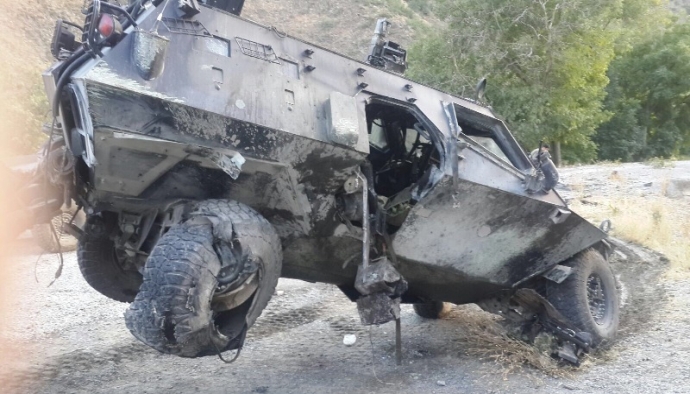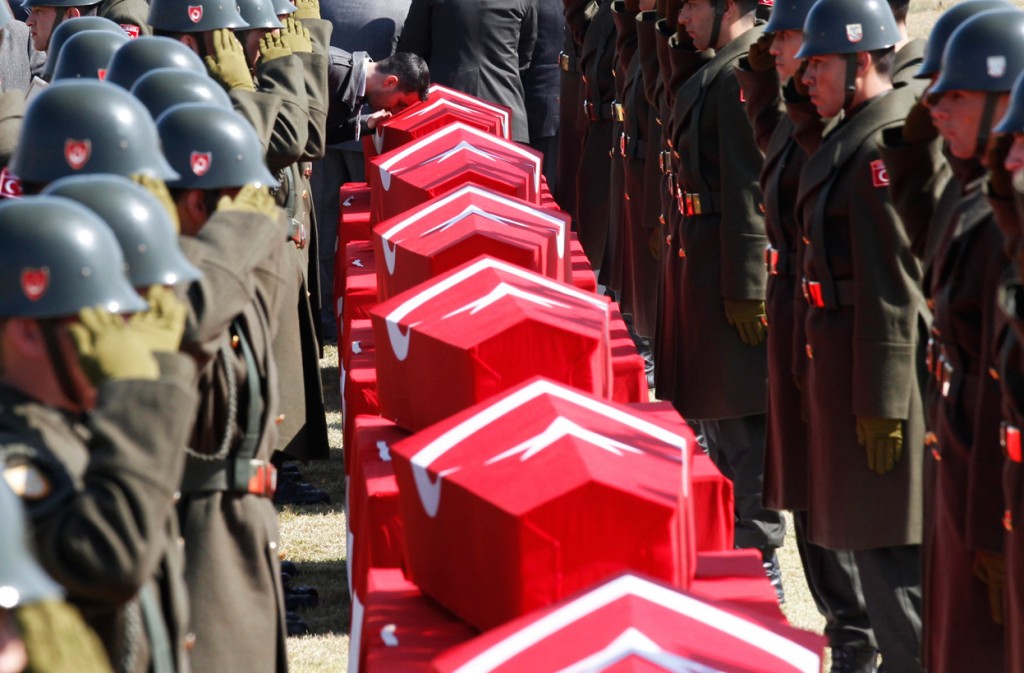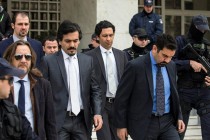A series of deadly attacks has rocked eastern Turkey, claiming the lives of sixteen soldiers and fourteen police officers in two days.
On Sunday night, PKK militants set up an armed ambush by the village of Dağlıca in Hakkâri province, located near the border with Iraq. Bombs were remotely detonated just as two military vehicles passed by.
Earlier today, fourteen police officers were killed by another roadside bomb laid in Iğdır, close to the Armenian border. The attack targeted a minibus carrying officers to the border gate.
Tuesday was marked by further fatalities in eastern Turkey, a predominantly Kurdish area. This morning PKK militants opened fire on a police officer’s car in Tunceli, killing the officer and wounding his daughter.
Also today, a police officer whose vehicle was attacked in another roadside bombing in Mardin succumbed to his injuries. Three other officers in the car were seriously injured.
On Sunday, two police officers were killed and three others wounded in Diyarbakır. Members of the YDG-H (the youth wing of the PKK) used rocket-propelled grenades to attack the police who were trying to cover the trenches dug by the militants.
Fatalities top 100 since ceasefire collapsed in July
More than 100 people, mostly security personnel, have been killed in Turkey since the government’s three-year ceasefire with the PKK collapsed during the summer.
Former Prime Minister Recep Tayyip Erdoğan had been widely praised for seeking a permanent peace deal with the outlawed PKK and his team had conducted talks with its jailed leader Abdullah Öcalan. Each side blames the other for the end of the ceasefire, with government rhetoric hardening in recent weeks.
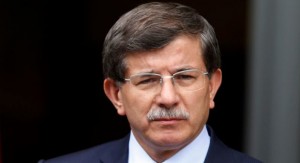
Following Sunday’s Dağlıca attack, Turkish Prime Minister Ahmet Davutoğlu vowed that Turkish forces would eradicate the PKK. “The mountains, plains, plateaux and cities of this country will not be abandoned to the terrorists. They will be cleansed; whatever happens, they will be cleansed.”
Turkish air raids against PKK positions
Since the resumption of violence by the PKK in mid-July, the Turkish government has mounted a series of air raids bombing suspected PKK bases in northern Iraq, killing hundreds of militants in the process.
On Monday night, dozens of F-16 and F-4 jets took part in one operation that lasted six hours, targeting PKK bases in Qandil, Basyan Avashin and Zap, hitting the PKK’s weapons and food supplies, as well as its machinegun positions.
Curfews imposed in eastern Turkey
The authorities have also imposed curfews in numerous towns and cities in the east of the country to try to prevent clashes between the predominantly Kurdish locals and state forces.
At the weekend, the Turkish army stormed Cizre, a city located in Şırnak province, to forcibly remove barriers the PKK had erected. Two children were reportedly killed in the crossfire between troops and militants. A curfew was imposed, and telephone and the internet cut. MPs from the pro-Kurdish Peoples’ Democratic Party (HDP) complained that the authorities prevented them from entering the city to check on the welfare of locals and to try and mediate a ceasefire.
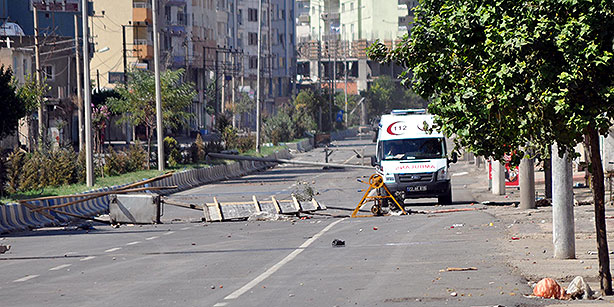
With the casualties and tensions rising, earlier today HDP co-chairman Selahattin Demirtaş again repeated his call for both sides to lay down their arms. He also accused the AKP-led government of pursuing deliberately confrontational policies. His opponents claim the HDP remains allied to the PKK, with Demirtaş and his colleagues yet to openly condemn the insurgents’ attacks as “terrorism”.
The PKK, which launched its bloody campaign for a separate Kurdistan in 1984, is designated a terrorist organisation by Turkey, the European Union and United States. The conflict has claimed over 40,000 lives to date.
Tensions rise
The PKK attacks have fermented nationalist anger against Turkey’s Kurdish population, encouraged by the inflammatory comments of right-wing politicians and pro-government media.
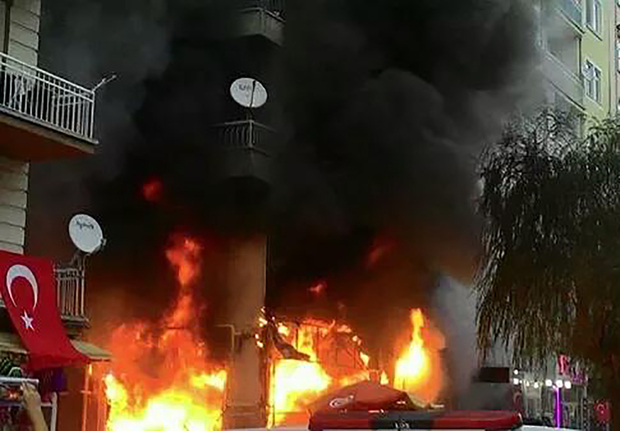
The Istanbul branch of the HDP said on Twitter that 126 of the party’s buildings around the country were attacked on Monday. Earlier today, its Ankara office was pelted with rocks, while protestors tried to storm its Kırşehir bureau. Its HDP flag was replaced with the MHP flag, whose supporters then set fire to neighbouring shops owned by Kurds.
There have also been several reports of Kurds being lynched across the country, including one man who was attacked for posting a picture on Facebook of him proudly wearing the uniform of the Kurdistan Regional Authority military. According to a news report in Hurriyet Daily News, nationalists tracked him down, beat him, ripped off his clothes and made him kiss a statue of Atatürk.
Turkey is due to go to the polls on 1st November following the failure of the four elected parties to form a coalition government. There are concerns on how the election campaign and voting will be conducted in eastern Turkey if the violence continues.
Main photo: One of the military vehicles destroyed by the PKK roadside bomb at Dağlıca on Sunday, which killed 16


